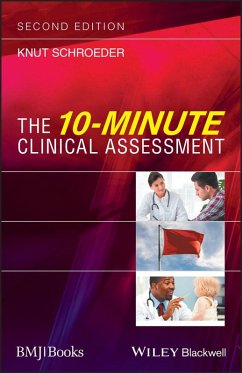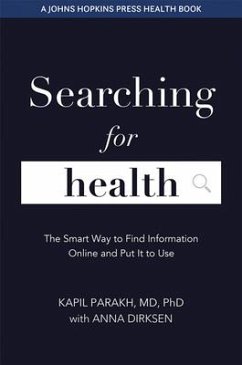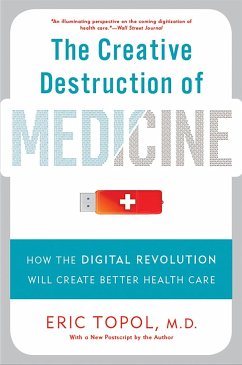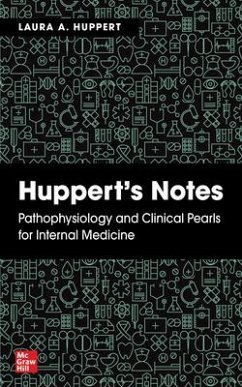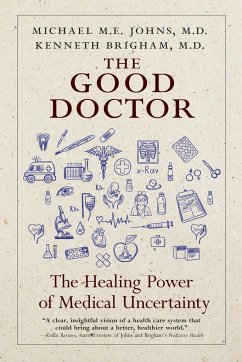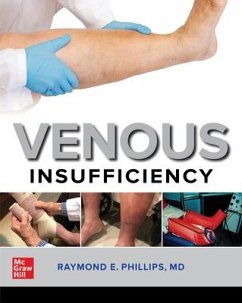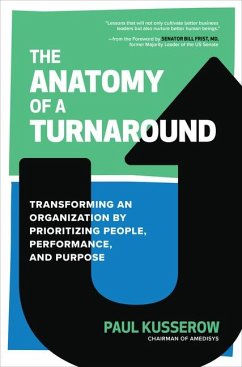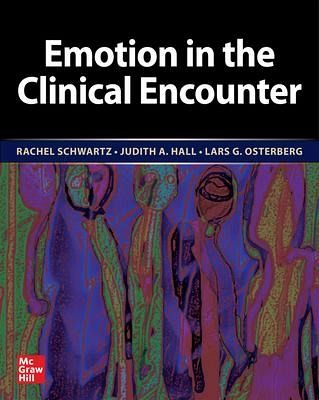
Emotion in the Clinical Encounter
Versandkostenfrei!
Versandfertig in über 4 Wochen
58,99 €
inkl. MwSt.

PAYBACK Punkte
29 °P sammeln!
The foundational knowledge and practical actions you need to effectively address your patients' emotions-and manage your own Emotions are ever-present in the context of illness and medical care and can have an enormous impact on the well-being of patients and healthcare providers alike. Despite this impact, emotions are often devalued in a medical culture that praises stoicism and analytical reasoning. Featuring the latest theories and research on emotion in healthcare, this much-needed resource will help you build the necessary skillset to navigate the extraordinary emotional demands of pract...
The foundational knowledge and practical actions you need to effectively address your patients' emotions-and manage your own Emotions are ever-present in the context of illness and medical care and can have an enormous impact on the well-being of patients and healthcare providers alike. Despite this impact, emotions are often devalued in a medical culture that praises stoicism and analytical reasoning. Featuring the latest theories and research on emotion in healthcare, this much-needed resource will help you build the necessary skillset to navigate the extraordinary emotional demands of practicing medicine. Emotion in the Clinical Encounter will help you: * Learn the science of emotion, as it relates to clinical care * Understand the role of emotion in illness * Recognize the connection between clinical response to patient emotions and care outcomes * Develop effective strategies for emotion recognition * Build strong emotional dialogue skills for medical encounters * Identify biases that may shape clinical interactions and subsequent outcomes * Understand emotion regulation in patients, providers, and in the clinical relationship * Address challenges and opportunities for clinical emotional wellness * Identify a new path forward for delivering emotion-based medical school curricula "How did we manage for this long in healthcare without this textbook? This is an essential guide to help both trainees and established clinicians sharpen their skills. Our patients will only benefit when we bring our full set of skills to the bedside." -Danielle Ofri MD, PhD, Clinical Professor of Medicine, New York University, Editor-in-Chief of Bellevue Literary Review, and author of What Doctors Feel: How Emotions Affect the Practice of Medicine "This is a unique contribution that deeply explores the role of emotions in clinical medicine, drawing on a wide range of disciplines and presenting both scholarly paradigms and practical applications. It should be essential reading for medical educators, clinicians and patient advocates who all aim to better navigate today's frustrating healthcare system." -Jerome Groopman MD, Recanati Professor Harvard Medical School, and author of How Doctors Think "Emotion in the Clinical Encounter is a must-read book for clinicians. It would be especially helpful if medical students start their careers by reading this invaluable volume to gain a deeper understanding of human emotion. The book is evidence-based and detailed enough to be perhaps the definitive guide to emotions for the clinician." -William Branch, MD, MACP, FACH, The Carter Smith, Sr Professor of Medicine, Emory University



